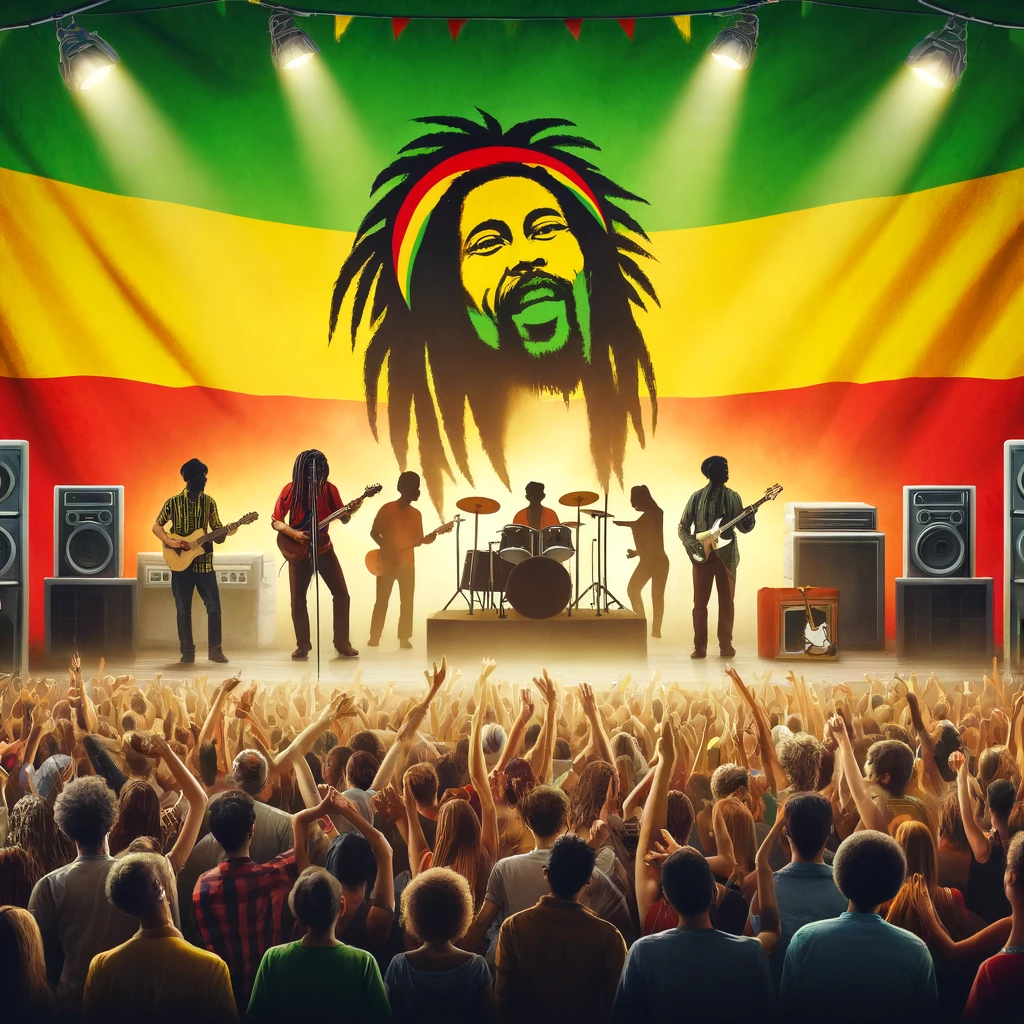Reggae music is more than just a genre; it’s a vital expression of Rastafari culture, spirituality, and resistance. This blog post delves into how reggae music serves as a powerful voice for the Rastafari movement.
1. Origins and Evolution
Reggae music originated in Jamaica in the late 1960s, evolving from ska and rocksteady and deeply influenced by the Rastafari movement. Its rhythmic beats and soulful melodies are not just for entertainment but are a form of social and spiritual communication. Icons like Bob Marley, Peter Tosh, and Bunny Wailer used reggae as a platform to express their Rastafari beliefs, speaking out against oppression and advocating for justice and equality.
2. Spiritual Messaging
At its core, reggae music carries a profound spiritual message. Lyrics often reference Rasta ideology, biblical themes, and the quest for righteousness. The music acts as a conduit for healing and meditation, with its hypnotic rhythms and chants mirroring the spiritual practices found in Nyabinghi gatherings, connecting listeners with the divine.
3. Reggae as Resistance
Reggae music has always been a tool for social change, embodying the Rastafari ethos of resistance against systemic injustice. Songs by reggae artists often critique political systems, social inequality, and advocate for civil rights, resonating with oppressed communities worldwide and inspiring movements for change.
4. Global Influence
The influence of reggae music extends far beyond Jamaica, touching hearts and minds across the globe. It has inspired a wide range of music styles and artists and continues to be a powerful voice for marginalized communities, promoting messages of love, unity, and resistance against oppression.
Closing Thoughts
Reggae music remains a heartbeat of Rastafari culture, its rhythms and messages a timeless echo of the community’s core values and struggles. It continues to inspire, uplift, and unite people across the world, proving that music can indeed be a force for change.

